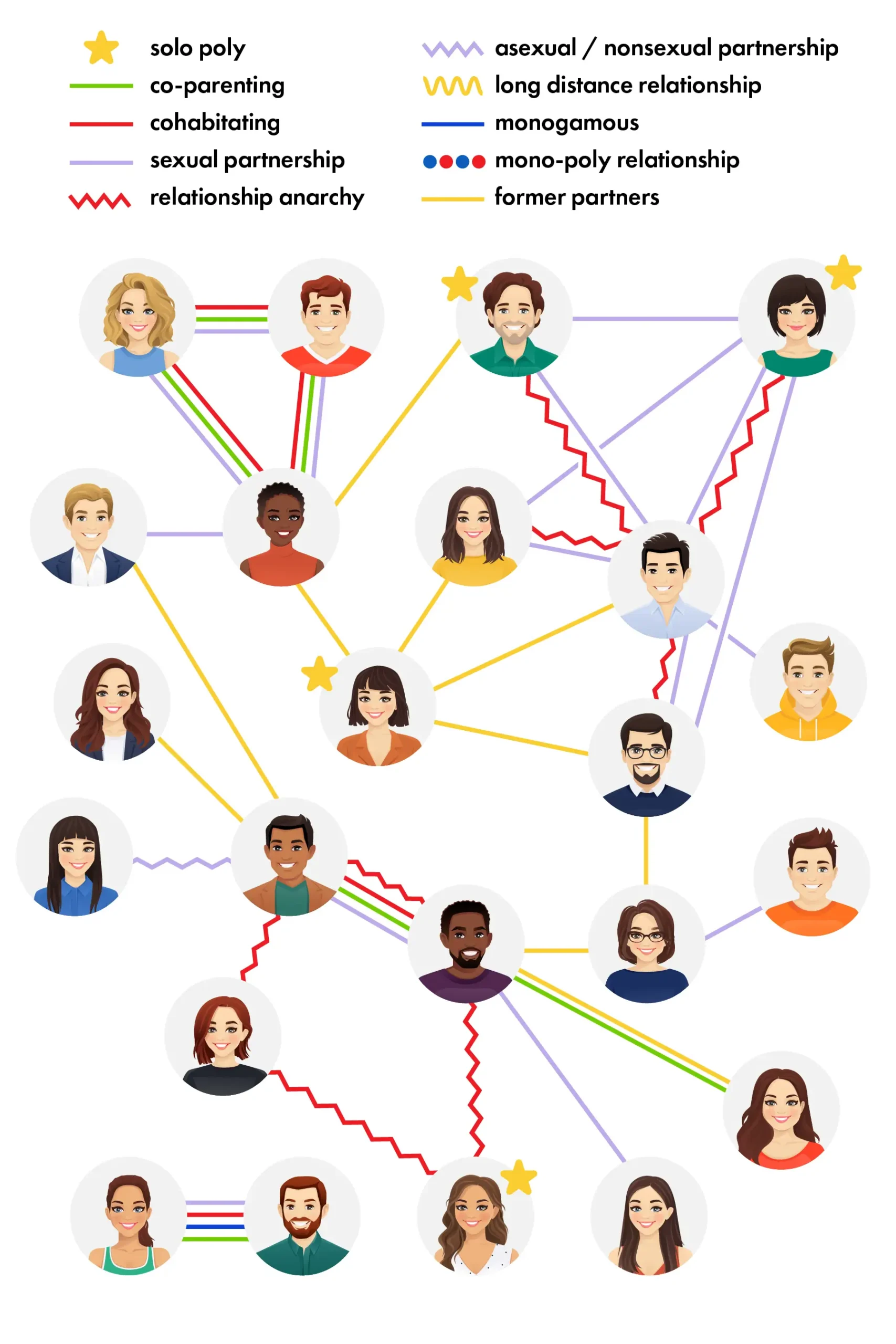 Home
Home
There’s more than one way to have a relationship.

Some people wish for a broader range of life experiences, including a balance between commitment and variety in their relationships. Increasingly, many people find that they cannot imagine themselves committing to a monogamous relationship and living for fifty or sixty years with only one person. If this is your experience, you may find the concept of nonmonogamy helpful.
Nonmonogamy is based on the idea that it’s possible to love and have relations with more than one person and that when we acknowledge this, we open ourselves up to new ways of living. It is not the same as cheating on your spouse or partner because in ethical nonmonogamy, every participant is aware of the situation and participates with full, informed consent.
Although a nonmonogamous approach to relationships is becoming more common, many people still find the concept very challenging. Before taking any irreversible steps, such as telling your significant other you want to make the relationship polyamorous, do some research so that you understand the concept and its different expressions. There are several different styles of consensual nonmonogamy, such as swinging, open relationships, polyamory, and more, and it will be helpful if you understand which you find most appealing.
Your next step should be to discuss the idea with your existing partner, if you have one. Explain that you are interested in exploring an open relationship and be prepared to listen to their point of view. Try to be clear about your own desires and needs. Do you want to be sexually active with others, or do you wish to love more than one person and build those relationships simultaneously? Is opening up essential for you, or is it just a preference? Take into consideration that the very concept could be shocking to some people, and they might need time to process. To facilitate the conversation, you may wish to talk to a couple’s therapist who is open to nonmonogamy (although not dogmatic about it).
Assuming your partner is willing (or if you are solo), you’ll need to think about communication styles. Some people prefer a “don’t ask, don’t tell” approach to their partner’s other connections, whereas others may prefer to know the people you’re intimate with and perhaps socialize together. It’s essential that everyone is on the same page about the type of relationship structure they are agreeing to, but be aware that this structure can evolve over time.
A good next step could be finding an online or offline community of like-minded people. There are many safe, nonsexual spaces where people just meet and talk about nonmonogamy, many of which are friendly to newcomers. They can be a great place to hear different stories, learn about the good and bad, and assess whether a nonmonogamous lifestyle is for you. Ultimately, there are as many ways to do nonmonogamy as there are nonmonogamous people, and there are many resources to help you come to grips with it. While it can be an exciting and fulfilling way to live, it’s also advisable to explore it thoroughly before doing anything irreversible.
 Home
Home

Don't have an account? Sign up
By creating an account, you are agreeing to our Terms of Use & Privacy Policy



